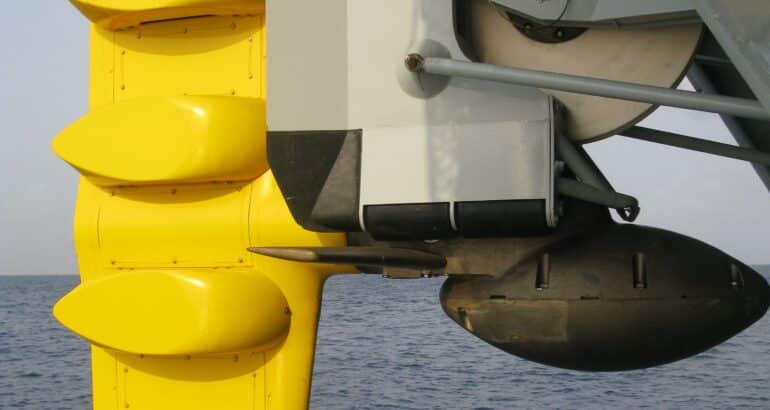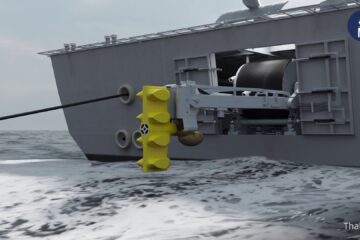The phased upgrade – known as the Sonar 2087 Capability Insertion Project (CIP) – forms part of the RN’s wider ASW Spearhead programme. ASW Spearhead is a rapid capability delivery initiative to enable new software-based functionalities to transition to the frontline much faster than traditional processes allow.
Sonar 2087 system combines a low frequency active variable depth sonar (common to the proprietary Thales CAPTAS-4 low frequency active/passive sonar) with a very low frequency passive towed array and a UK-developed software suite. Achieving initial operating capability in late 2007, Sonar 2087 remains the surface fleet’s principal long range ASW sensor and is being carried forward into the RN’s new Type 26 frigates.
As the principal sensor deployed from the RN’s specialist ASW ships, 2087 is required to provide a persistent capability to deter, deny, find and fix against a broad range of nuclear-powered and conventional submarines, and uncrewed underwater vehicles. As well as providing persistent operational advantage in the North Atlantic against peer/near-peer threats, it is also required to deliver persistent ASW sensing in support of the UK’s Maritime Task Group.

The aim of the Sonar 2087 CIP is to support and facilitate rapid incorporation of new technologies and capability enabled by open architecture. Thales was awarded a £110 million Sonar 2087 Design Authority Capability Insertion Project (S2087 DA-CIP) contract in September last year under which the company is taking responsibility for procurement and installation of capability into Sonar 2087. The base contract lasts 42 months, with an option for one further year.
As part of its Sonar 2087 DA-CIP role, Thales is undertaking evaluations of candidate solutions from multiple suppliers addressing software-based enhancements addressing a number of areas. These include improved detection and tracking, enhancements to the operator human-computer interface, and new decision aids and training tools.
A first sea trial was conducted in January 2023 in support of the CIP programme. The intention is that enhancements will be installed as part of routine ship maintenance/upkeep periods.






